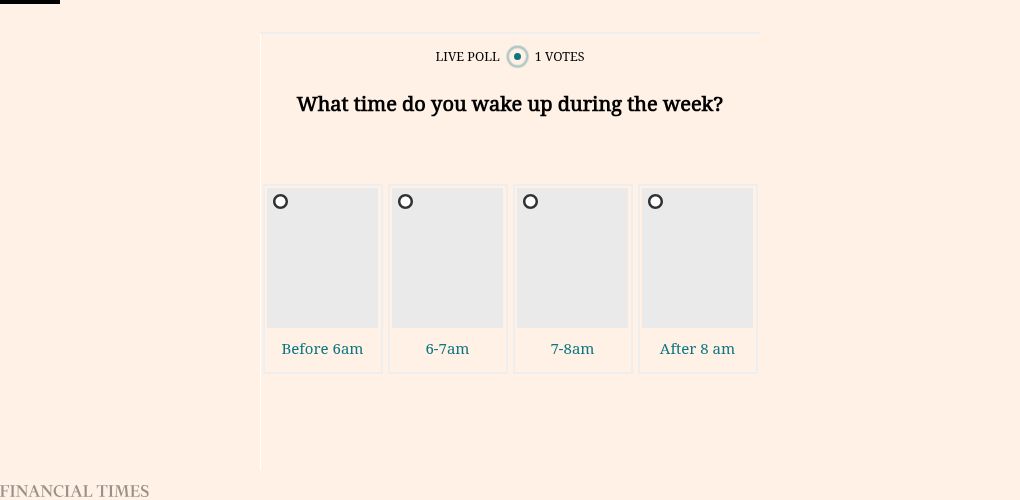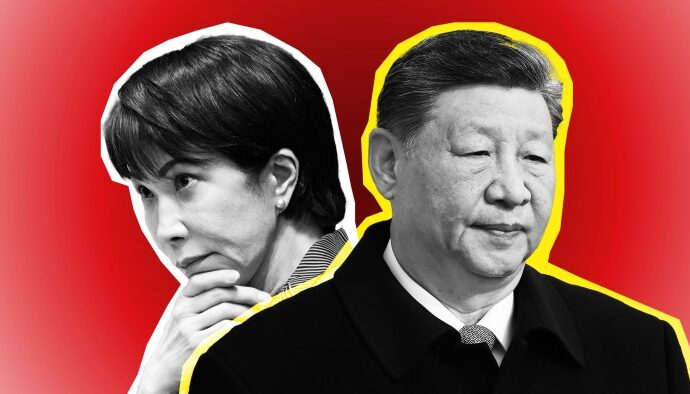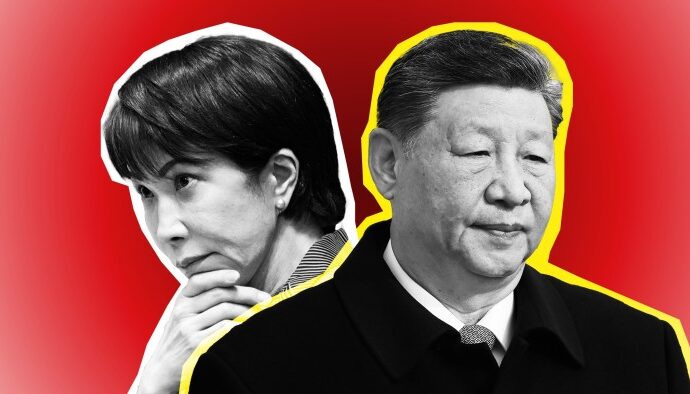Good morning. The Reserve Bank of India’s monetary policy committee is meeting this week. While the general expectation is that the central bank will hold interest rates, a cut cannot be ruled out entirely. We will keep an eye on the meeting (while you celebrate Dussehra) and inform you on Friday about what transpired.
In today’s newsletter, Tata Capital is set to hit the market with the year’s biggest IPO. But first, Prime Minister Narendra Modi has not had a worse year.
Stuck on all fronts
The “Gen Z” protest in the Himalayan region of Ladakh is the latest in a string of setbacks that Narendra Modi is facing this year. Last week police shot dead four people, and the subsequent arrest of the popular leader Sonam Wangchuk has further exacerbated the situation. The protesters are seeking statehood for Ladakh, a geopolitically important area near the Chinese border. They also want protections promised by the Modi administration in 2019, when it abrogated the constitutional privileges previously offered to Kashmir and its neighbouring region.
This year has been the worst for Modi in his 11 years as prime minister, with both external and internal events contributing to a general souring in his popularity. Externally, as has been discussed in this newsletter, Modi’s inability to influence his “friend” Donald Trump in securing a trade deal for India has left several business sectors exposed to the highest tariffs. That Trump has only doubled down and punished India (and not China) for buying Russian oil has made things worse. But perhaps the deepest cut of all is Trump cosying up to Pakistan. On Friday the US president once again hosted Pakistan’s chief Field Marshal Asim Munir in the White House, and this time they were also joined by Prime Minister Shehbaz Sharif.
Internally, the economy has been wobbly for several quarters. Even though GDP growth numbers look good on paper, there is no hiding the consumption and credit crisis that the middle class is experiencing. In the past couple of months, bereft of a deal, Modi has been trying to talk up local consumption. On Sunday, he used his radio programme Mann Ki Baat to urge Indians to buy locally manufactured products. It’s too early to tell how significant the lift-off from the week-old reforms in the goods and services tax will be. If the festival season, which we are now bang in the middle of, does not spur consumption, then the outlook for the rest of the year will continue to be bleak. Urban unemployment has been hovering around the 7 per cent mark for months, with no significant improvement. Even the stock market has found little reason to cheer, with the benchmark index down 4 per cent in the past 12 months.
The most marked change, though, is in Modi’s popularity online. While he used to always command ringing support on social media, no matter the issue, that is less visible these days. Yesterday the prime minister posted on social media after the Indian cricket team beat Pakistan in the Asia Cup final, calling it “Operation Sindoor on the games field”. The replies were full of ordinary citizens chiding him for comparing a game to a military operation, which followed a terror attack in which Indian lives were lost.
The immediate impact of this annus horribilis for Modi will be visible in the important state elections in Bihar later this year. The current crises are forcing a rethink on all aspects of the government. How the country emerges from this will determine what its political future will look like.
What do you think Modi should do? Hit reply or email us at indiabrief@ft.com
Recommended stories
The SEC has vowed an end to quarterly reporting.
Trump proposes a peace plan for Gaza, Netanyahu backs it.
TVS is relaunching its Norton motorbikes.
How Jared Kushner brokered the $55bn takeover of Electronic Arts.
US auto parts maker First Brands has filed for bankruptcy.
Watch out for these red flags in job advertisements.
Tata’s list one, hold one
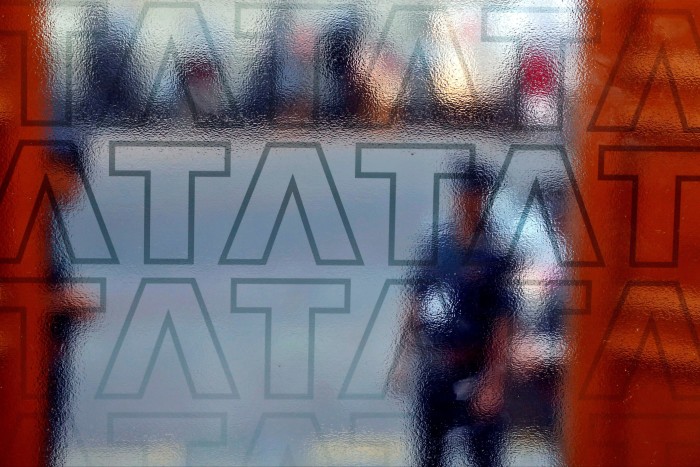
In what is expected to be India’s largest IPO this year, Tata Capital will open its offer on October 6 with a price band of Rs310-Rs326, raising up to $1.75bn. This finance arm of the “salt to software” conglomerate is the third largest non-banking financial company in India, managing Rs2.2tn in assets, and has been growing at an average of 28 per cent in the past three years. The listing follows a 2022 order by the Reserve Bank of India, which mandated that all large non-banking finance companies must go public by September 30.
But the real company to watch is Tata Sons, the holding group that owns nearly 89 per cent of Tata Capital. That entity, too, was mandated to go public by the RBI, since it was designated as an “upper layer shadow bank”, the category for the largest and most important finance corporations. The deadline for compliance lapses today, and there are no signs the company intends to offer any shares to the public. In March last year, Tata Sons had applied to the RBI to change its status from that of being a core investment company, in order to avoid having to comply with the rule. In January this year, the banking regulator said it was examining this request. There has been no word from either organisation since.
The Tata empire is massive and central to the Indian economy. Tata Sons has managed to operate quietly for more than 150 years. A public listing — which analysts estimate could value the company at more than $127bn — will force it to show more of its cards and be open to scrutiny. It will also benefit group companies who are shareholders, by unlocking the value of their holding. But the Tatas are unlikely to give up without a fight. For now they are willing to offer the smaller prize — Tata Capital — while they figure out a way to keep the bigger one private.
Go figure
There seems to be no end in sight for the gold rally. The precious metal has been hitting record highs all year.
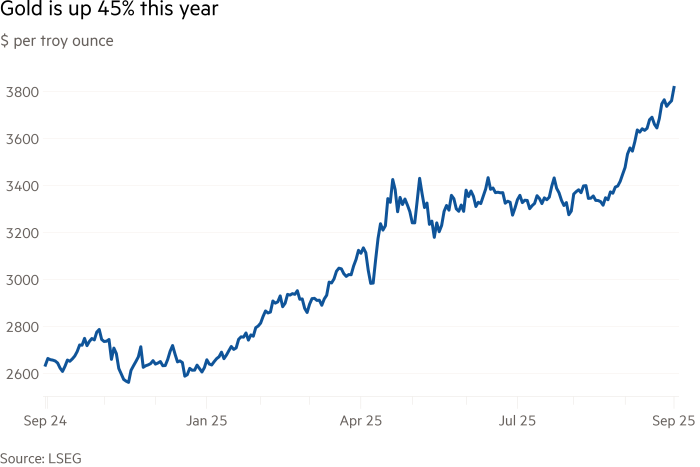
My mantra
“When you are in the business of making real assets in remote parts of India, the most important consideration is how do you ensure you get the social licence to operate in the area. The full support of the community is key to the project.”
— Akshay Hiranandani, chief executive, Serentica Renewables

Each week, we invite a successful business leader to tell us their mantra for work and life. Want to know what your boss is thinking? Nominate them by replying to indiabrief@ft.com
Quick question
Even though (some) successful people love to talk about waking up at 4am, the most popular time slots for setting an alarm are 6am-6.30am and 7am-7.30am. I am curious to know, what time do you wake up on weekdays? Tell us here.
Buzzer round
On Friday, we asked: Which Indian company is in the world’s top three applicants for America’s H-1B visas?
The answer is . . . TCS.
Ram Teja was first with the right answer, followed by Peter Chitroda, Saheb Singh Chadha and Prasanna Venkatesh. Nice to see some new names in the list. Congratulations!
Thank you for reading. India Business Briefing is edited by Tee Zhuo. Please send feedback, suggestions (and gossip) to indiabrief@ft.com.
